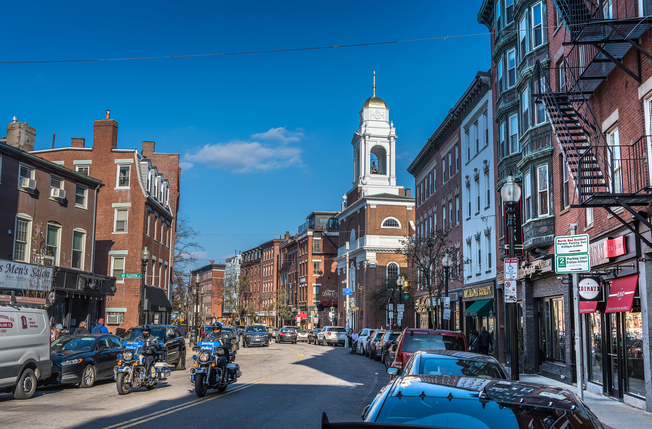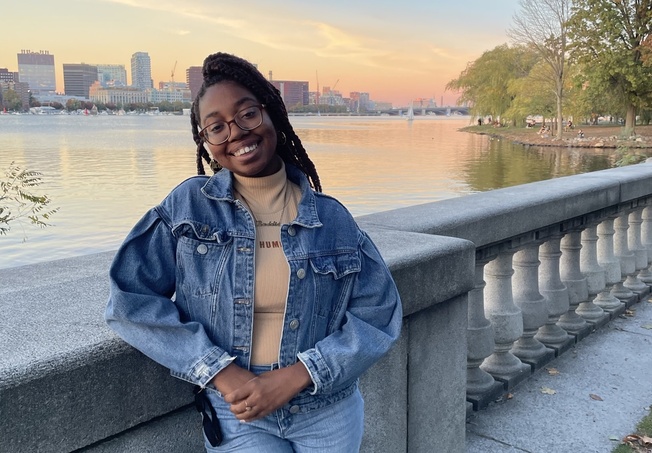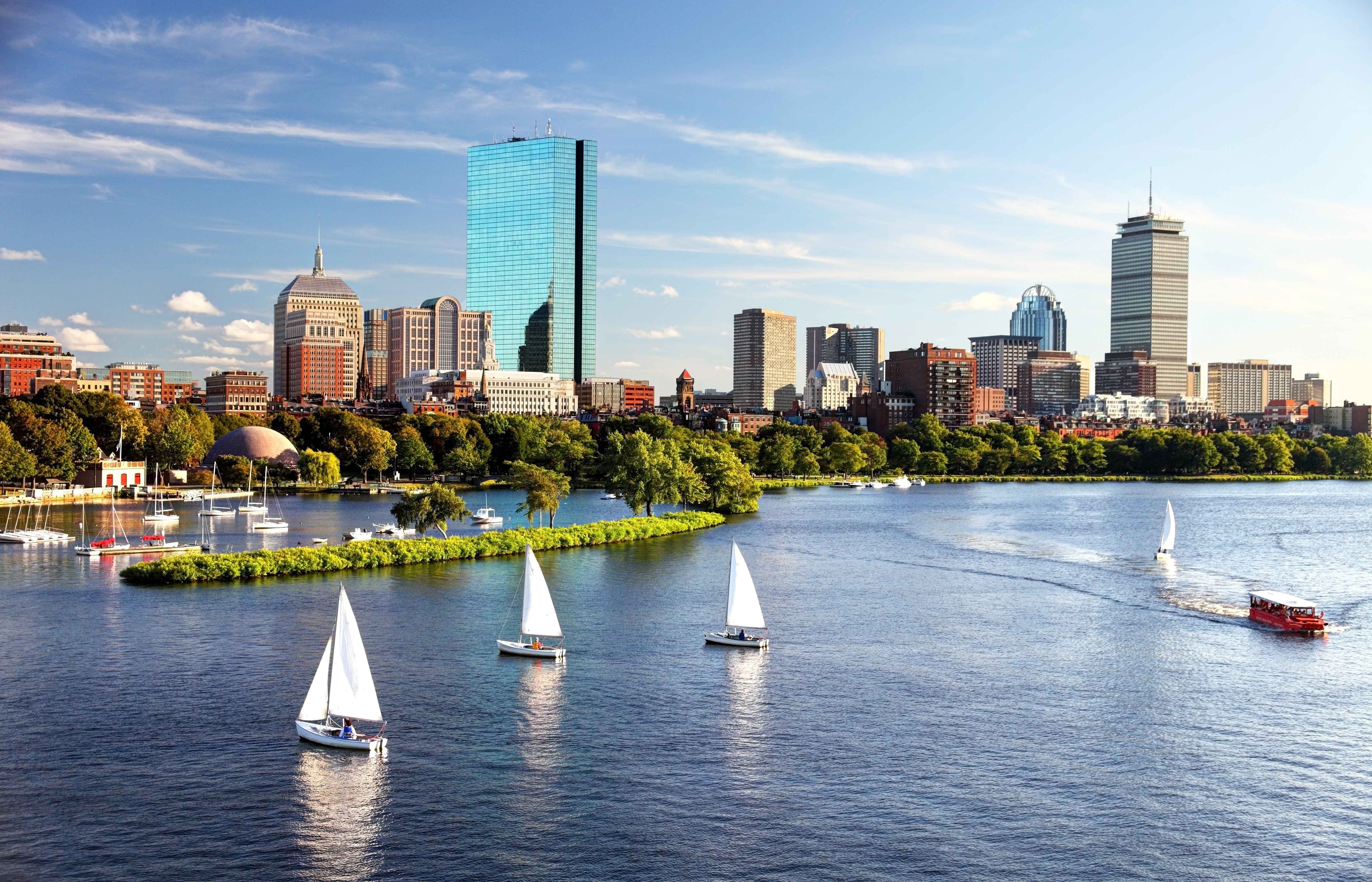
How to Find an Apartment in Boston

Boston is one of the most competitive rental markets in the country, partially because it’s one of America’s biggest college towns. Each year, renters compete with an influx of tens of thousands of college and university students for housing — creating a rental market unlike any other in the U.S. In Boston, move-in dates typically revolve around academic calendars, housing is limited and on the expensive side, broker’s fees are standard, moving trucks need to be reserved at the beginning of the summer, and renters sign leases for apartments months in advance of their move.
In this guide, we dive into everything you need to know for finding an apartment in Boston — from your initial search to your signed lease. To skip to specific section, refer to the table of contents below.
- Planning: Important Deadlines for Moving in Boston
- Apartment Hunting in Boston: Picking Your Neighborhood
- Touring: Everything You Need to Know
- Budgeting: Which Fees You Can Be Charged For (And Which Are Illegal)
- Learn More: Boston Resources Roundup
Planning: Important Deadlines for Moving in Boston
Boston has a pretty unique apartment rental market, and with it come unwritten rules and unofficial deadlines that you’ll want to stay on top of if you want to have a stress-free move.
May 1 – Start Your Apartment Search
It may seem a little premature, but the earlier you start your apartment search in Boston, the better. Remember: The majority of Boston residents are renters, and you are going to have a lot of competition for units. Starting your apartment hunt early will allow you to tour more units, and prevent you from settling on a place that doesn’t fit your needs out of desperation.
July 1 — Rent Your Moving Truck
Not only are you competing with hundreds of thousands of renters for Boston apartments, but you’re also competing for a finite number of moving trucks in the area. Again, even though it feels a little early to start planning a September 1 move in July, you’ll thank us later when you’re not driving all the way to Stoughton to pick up the last U-Haul in the Greater Boston area. For more information, read our full guide to getting a moving truck in Boston.
August 1 — Give Your Landlord Your 30-Day Notice to Vacate
If you’re already living in Boston, it’s likely that your landlord asked you to resign your lease months ago. However, if you haven’t given them your notice to vacate your apartment yet, it’s time. Most leases require a 30-day notice to vacate at the minimum.
August 17 — Apply for a Parking Pass
If you are using a moving truck and looking to park on one of Boston’s infamously narrow roads, you’re going to need a parking pass to make it happen. Different cities (like Somerville or Cambridge) have different laws around parking passes for moving trucks, but in Boston, you’ll need to apply at least two weeks before your move.
August 31 — Pack Up Your Old Apartment
Don’t be surprised if your streets start to get flooded with moving trucks on August 31. Almost all leases in Boston turn over on September 1 due to the impending fall semester for college students, so most renters pack up their apartments the day before.
September 1 — Moving Day (and Allston Christmas!)
Happy Moving Day and Merry Allston Christmas to all who celebrate! September 1 may be the most chaotic day of the year in Boston, as most leases are turning over and renters move out of one apartment into the next. This can be a stressful day, but it also has its perks; many students who are moving out of their apartments in Allston (a neighborhood notorious for its high student population) end up leaving behind barely used furniture on the sidewalk. That’s how September 1 earned its nickname as the unofficial Boston holiday Allston Christmas. Scoring a piece of free furniture off the street is a rite of passage for Bostonians.
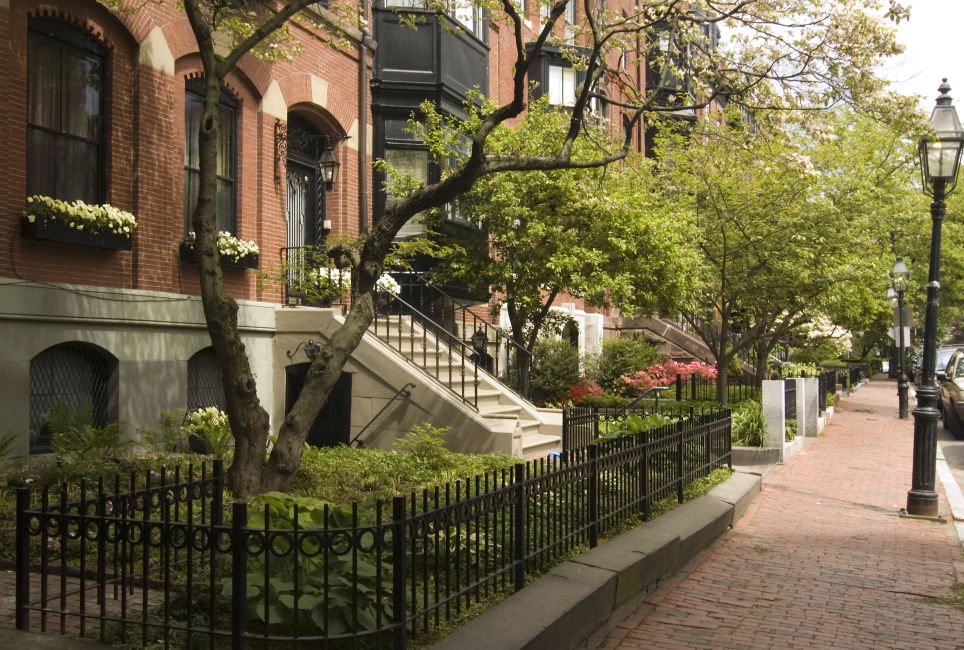
Apartment Hunting in Boston: Picking Your Neighborhood
The Greater Boston area offers a number of neighborhoods with completely different amenities. When searching for your perfect apartment, it’s important to do your neighborhood research to find the place that’s right for you.
In this part of the guide, we will go through what you can expect to find in various neighborhoods in the area, helping you decide on a future neighborhood.
Price
Our rule of thumb for renters is to spend no more than a third of their on housing. Boston is one of the more expensive cities in the nation, so depending on your income, you may need to live with roommates in order to afford a place here.
Below is a breakdown of neighborhoods in Boston and nearby Cambridge by their median rent prices for studios, one-, two-, and three-plus–bedroom apartments, based on our rental data.
Boston and Cambridge Neighborhood Rent Breakdown
| Neighborhood | Studio | 1-Bedroom | 2-Bedroom | 3-Bedroom |
|---|---|---|---|---|
| Allston | $2,000 | $2,350 | $3,000 | $3,600 |
| Back Bay | $2,400 | $3,195 | $5,055 | $6,760 |
| Bay Village | $4,370 | $2,650 | $5,650 | - |
| Beacon Hill | $2,238 | $2,795 | $3,600 | $5,000 |
| Brighton | $2,095 | $2,400 | $2,900 | $3,543 |
| Brookline | $2,300 | $2,898 | $3,550 | $4,600 |
| Cambridgeport | $2,000 | $2,800 | $3,693 | $4,350 |
| Central Square | - | $2,800 | $3,350 | $3,450 |
| Charlestown | $2,600 | $3,356 | $3,800 | $5,400 |
| Chelsea | $1,635 | $2,200 | $2,800 | $3,080 |
| Chinatown | $3,353 | $3,573 | $3,945 | $5,009 |
| Dorchester | $2,350 | $2,400 | $2,850 | $3,300 |
| Downtown | $3,092 | $3,652 | $4,636 | $5,100 |
| East Boston | $2,575 | $2,500 | $3,155 | $3,548 |
| Everett | $2,372 | $2,050 | $2,511 | $3,150 |
| Fenway | $2,395 | $2,900 | $3,700 | $5,248 |
| Harvard Square | $2,066 | $3,430 | $4,150 | $5,200 |
| Hyde Park | $1,612 | $1,975 | $2,500 | $3,300 |
| Jamaica Plain | $2,700 | $2,700 | $3,150 | $3,600 |
| Kendall Square | $3,242 | $3,918 | $4,587 | $5,995 |
| Malden | $1,779 | $2,113 | $2,700 | $3,171 |
| Mattapan | $1,875 | $2,100 | $2,635 | $3,250 |
| Medford | $1,998 | $2,495 | $2,800 | $3,500 |
| Mission Hill | $2,050 | $2,450 | $3,370 | $4,500 |
| North End | $2,300 | $2,600 | $3,400 | $4,496 |
| Revere | $1,888 | $2,325 | $2,800 | $3,125 |
| Roslindale | $2,403 | $2,250 | $2,800 | $3,273 |
| Roxbury | $2,250 | $2,593 | $3,179 | $3,500 |
| Seaport | $3,192 | $3,800 | $5,598 | $8,950 |
| Somerville | $2,488 | $2,700 | $3,395 | $3,900 |
| South Boston | $2,960 | $3,187 | $3,800 | $4,500 |
| South End | $2,786 | $3,285 | $4,000 | $6,400 |
| West End | $3,195 | $3,792 | $4,955 | $5,765 |
| West Roxbury | $2,093 | $2,315 | $3,100 | $3,550 |
| Winthrop | $1,905 | $2,163 | $3,000 | $3,200 |
For more help figuring out what your budget should be, try our Rent Calculator tool.
Public Transportation
Boston is one of the most walkable and transit-accessible cities in the country, and features the nation’s first subway system — the MBTA, which locals call the T. In addition to the T, Boston also has a robust bus system as well as a commuter rail that connects it to further suburbs and cities.
When picking your neighborhood, it’s important to think about where you will be commuting and how often. The vast majority of Boston is served by public transportation — but some commutes are easier than others. For example, if you’re working in East Boston and living in Cambridge, then you’d need to take three different train lines to get to and from work each way. Use the MBTA’s Trip Planner tool to check out potential commutes, as well as the “What’s Nearby” tool on our apartment listing pages to see how close a unit is to a train station. You can also filter by which T stops you'd like to live close to when searching for Boston apartments on our site.
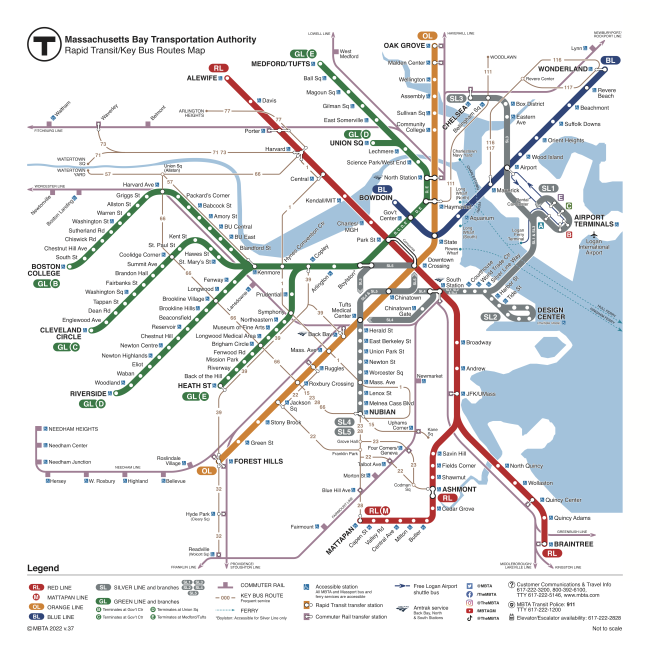
What’s Nearby
Nearby grocery stores, parks, nightlife, and public transit can make or break a neighborhood for a renter. That’s why every listing on our website comes with an interactive map that helps you see what’s nearby, including: places to eat, schools, bus stops, gyms, grocery stores, parks, gas stations, and train stops.
Lifestyle
If you are moving to Boston from out of town, it may take you a few tours to get a feel for the different neighborhoods. Neighborhoods closer to downtown like Back Bay or South Boston will tend to be more walkable and less car-friendly for renters, with lots of nightlife, amenities, and excitement nearby. However, at the same time, they’ll also tend to offer apartments with less square footage and higher price points. Neighborhoods that are a bit further away may require more legwork to get to public transportation or to nearby restaurants or grocery stores. Living options may also lean more toward multifamily homes with fewer units in them the farther away you get from the city, while you’ll find larger apartment buildings with more units in them closer to the city.
As you get a better sense of what you’re looking for, you’ll be able to group together certain neighborhoods that match your criteria and lifestyle during your apartment search.
For example, if you are looking to live in a newer building or a luxury apartment and have a more classic city lifestyle, close to the hustle and bustle of downtown, you may want to search in neighborhoods like: Downtown, South Boston, Seaport District, and Fenway (near Northeastern University... and the Red Sox!).
If you are looking for a quirky apartment or brownstone close to the city, you may be more interested in: Beacon Hill, Back Bay, or the North End.
If you’d prefer a more neighborhood-like feel with a unit in a smaller multifamily home, check out areas like: Jamaica Plain, Roxbury, Allston (near Boston University), Brighton (near Boston College), Inman Square in Cambridge, Somerville, Medford (near Tufts University), or Brookline.
For a more detailed description of what you can expect from different areas in Boston, check out our full Boston Neighborhood Guide.
Touring: Everything You Need to Know
Boston is a broker’s market, which means that you’ll need to work with a licensed broker in order to see almost any apartment in the city (and you’ll need to pay them a broker’s fee). This is due in part to the competitive nature of the rental market in Boston, which also leads to many units only being on the market for a few days before being rented out. Renters from out of town may also be surprised to hear that many listing agents host open houses for apartments, where there can be anywhere from 5 to 20 potential tenants touring and applying for a unit at once.
If you’re able to, you’ll want to tour any potential apartment before you sign onto a one-year lease to make sure it meets your needs. If you are not able to tour in person, then ask your real estate professional about virtual touring. Before you tour, check out our guide to the 17 things you should look for in a rental.
What to Bring to a Tour
If you come empty handed to an apartment tour in Boston during the rental market’s busy season, then there’s a good chance you’ll leave that way, too. You may be asked to fill out an application during the tour if you like an apartment. To give yourself a better chance at being accepted, come to the apartment tour with a few documents in tow: an ID, a bank statement or paystubs, a printout of a free credit report, and a list of references.
If you don’t have an income or if you have a lower credit score, you may be required to have a guarantor or cosigner on your lease as well. If you suspect this is the case, come prepared with the name and contact information of a guarantor as well.
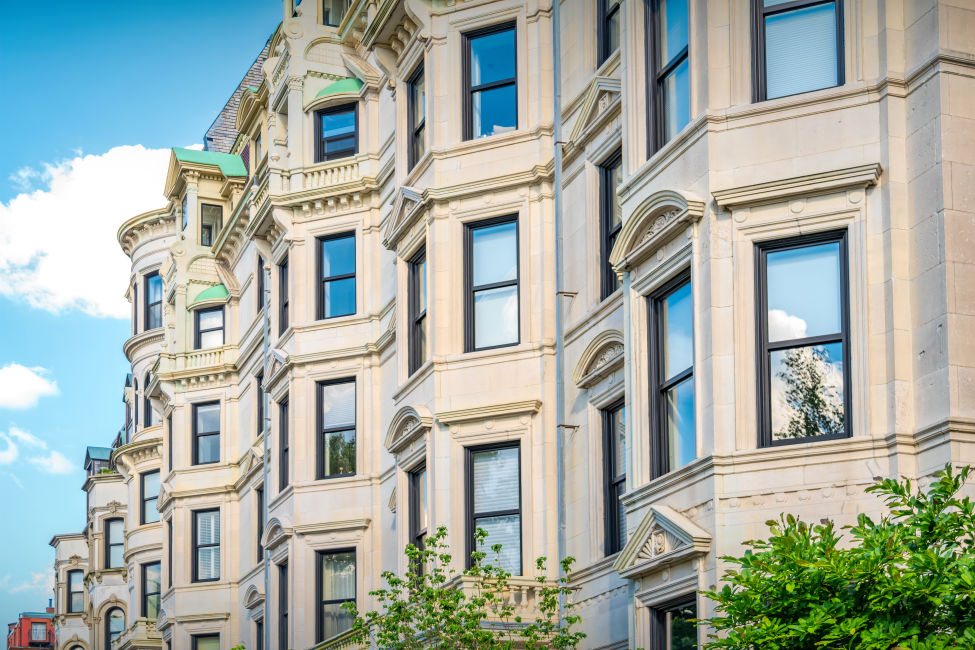
Budgeting: Which Fees You Can Be Charged For (And Which Are Illegal)
One of the hardest aspects of moving to a new apartment in Boston is the upfront cost. Most landlords will require you to provide first and last month’s rent, as well as a security deposit equal to one month’s rent. On top of that, the broker will require a broker’s fee, also equal to one month’s rent. That means that the upfront cost of renting an apartment is typically four times one month’s rent. A landlord is also allowed to charge you a lock change fee. These fees are all completely legal.
However, there are also some fees that are illegal in Boston — and it’s a red flag if a landlord or realtor asks you to pay them. In Boston, a landlord cannot ask you to pay:
- A fee to “hold” an apartment
- An application fee
- A credit check fee
- A “finder’s fee” for the apartment, if they are not a licensed real estate agent
Learn More: Boston Resources Roundup
Find even more of our resources about moving to Boston below:
- What No One Tells a New Grad Moving to Boston
- The Guide to Getting a Moving Truck in Boston
- What I Learned Renting in Boston for a Decade
- How I Found an Apartment As a Freelancer
- What is a Broker’s Fee?
- Moving From the City to the Suburbs? Here’s How Much You Can Save In Rent
- The Complete Guide to Renting as a Student
Top cities
Atlanta Apartments
1,999 apartments starting at $600/month
Austin Apartments
4,949 apartments starting at $600/month
Baltimore Apartments
1,472 apartments starting at $500/month
Boston Apartments
3,499 apartments starting at $940/month
Charlotte Apartments
2,903 apartments starting at $450/month
Chicago Apartments
4,012 apartments starting at $450/month
Dallas Apartments
5,609 apartments starting at $604/month
Fort Worth Apartments
2,193 apartments starting at $600/month
Houston Apartments
4,504 apartments starting at $590/month
Las Vegas Apartments
1,081 apartments starting at $704/month
Los Angeles Apartments
11,535 apartments starting at $625/month
Miami Apartments
544 apartments starting at $1,000/month
Milwaukee Apartments
928 apartments starting at $465/month
New York Apartments
4,118 apartments starting at $488/month
Oakland Apartments
608 apartments starting at $885/month
Orlando Apartments
842 apartments starting at $825/month
Philadelphia Apartments
3,657 apartments starting at $550/month
Phoenix Apartments
4,153 apartments starting at $599/month
Pittsburgh Apartments
1,223 apartments starting at $600/month
Portland Apartments
2,519 apartments starting at $599/month
Raleigh Apartments
1,367 apartments starting at $750/month
San Antonio Apartments
3,925 apartments starting at $525/month
San Diego Apartments
2,960 apartments starting at $650/month
San Francisco Apartments
436 apartments starting at $675/month
San Jose Apartments
405 apartments starting at $1,300/month
Seattle Apartments
3,623 apartments starting at $450/month
Tampa Apartments
1,078 apartments starting at $800/month
Washington DC Apartments
2,878 apartments starting at $745/month

